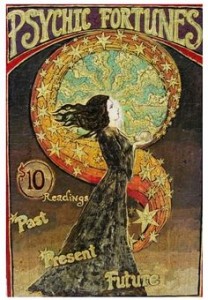Faizur Rasul (b. 1910): Habits, Culture & Belief
From Bengal to Birmingham could be seen as a clash of cultures, with an Indian man making his way to England with little knowledge of the language and culture beforehand. Upon finishing the book, one would much rather replace the word clash with amalgamation. Faizur Rasul sets his heart on moving to England on little more than a whim, a brief moment of jealousy of his cousin who is about to make a similar journey, but once he gets there Rasul does not boast even a shred of regret. Homesickness is not a word in his vocabulary.

Rasul undergoes a steady transition in to English culture. His first job in England is at a mosque in Woking, Surrey, where the Imam takes a shining to his fellow muslim and he is set to work as a domestic after stating that he has “come to learn English and a trade” (85). It is familiar to him, a pill to alleviate the inevitable culture shock. Here Rasul is able to interact with English co-workers in a safe environment, a stepping stone in to English culture. His immersion is gradual and effective: his next job is using his skills as a domestic to work for “Sir Abdul Qadir, a newly arrived member of the Indian Council” (161). Again, he has a piece of home to relate to, but rather than Rasul learning from them, it is now his turn to teach them what he knows of language and culture, and what better way to learn about something than to have to teach it to someone else?
The subtleties between cultures is evident when Rasul walks down the street with a lady. He is accompanying Miss Bowden on a walk, and she feels it necessary to inform him that “when a gentleman is in town with a lady, he walks on the street-side of the pavements, and keeps the lady inside” (99). It is these small adjustments that can confuse Rasul, although he respects and adheres to them. These are also the seemingly meaningless things that could make one feel like an outsider, but by learning from others and using common sense, Rasul never expresses doubts of not fitting in.

Quite the opposite becomes true in fact. Rasul takes advantage of his position as a foreigner,
and goes on to become a travelling fortune teller after he leaves the Qadirs. He manipulates the ignorance of the local population, with one shopkeeper advising him “to put a turban on, dress funny to look Eastern, and make a row in the market to get a crowd, and then pick the plums” (179). Rasul also picks out a jibbah and some small Buddha statues. Wearing a Sikh turban, a Muslim smock, and presenting his Buddhist statues, Rasul is borrowing from as many cultures as possible to present himself as exciting to the unaware consumers of his fortune-telling. He does harbour a shred of guilt for his manipulation, but not enough to stop him, as the money was good, good enough that “the box was so heavy with money that we [Rasul and his business partner] carried it in turn” (181). It could be seen that he is embracing as many cultures as possible in order to make his way in life, however personal gain was taking precedence over cultural respect, a notion difficult to agree with.
Rasul’s autobiography provides a perfect case study to examine how to integrate in to a foreign culture. He goes about the process steadily, and apart from a minor, fortune-telling blip, it would be safe to say that he never loses sight of his Indian heritage while still embracing what it means to be English. Many times he is referred to as a perfect gentleman. It shows how racial issues have changed between then and now. Immigration was not such a hot political topic, and so the lack of awareness about the potential problems also meant for a lack racially targeted abuse. The difference in race is dealt with matter-of-factly, there is not a single instance of an emotionally or violently charged encounter in the entire text. There is of course the possibility that Rasul chose not to write about it due to it being traumatic, but there is not even a hint towards it.
Bibliography
Rasul, Faizur. From Bengal to Birmingham. (London: Andre Deutsch, 1967)

Leave a Reply